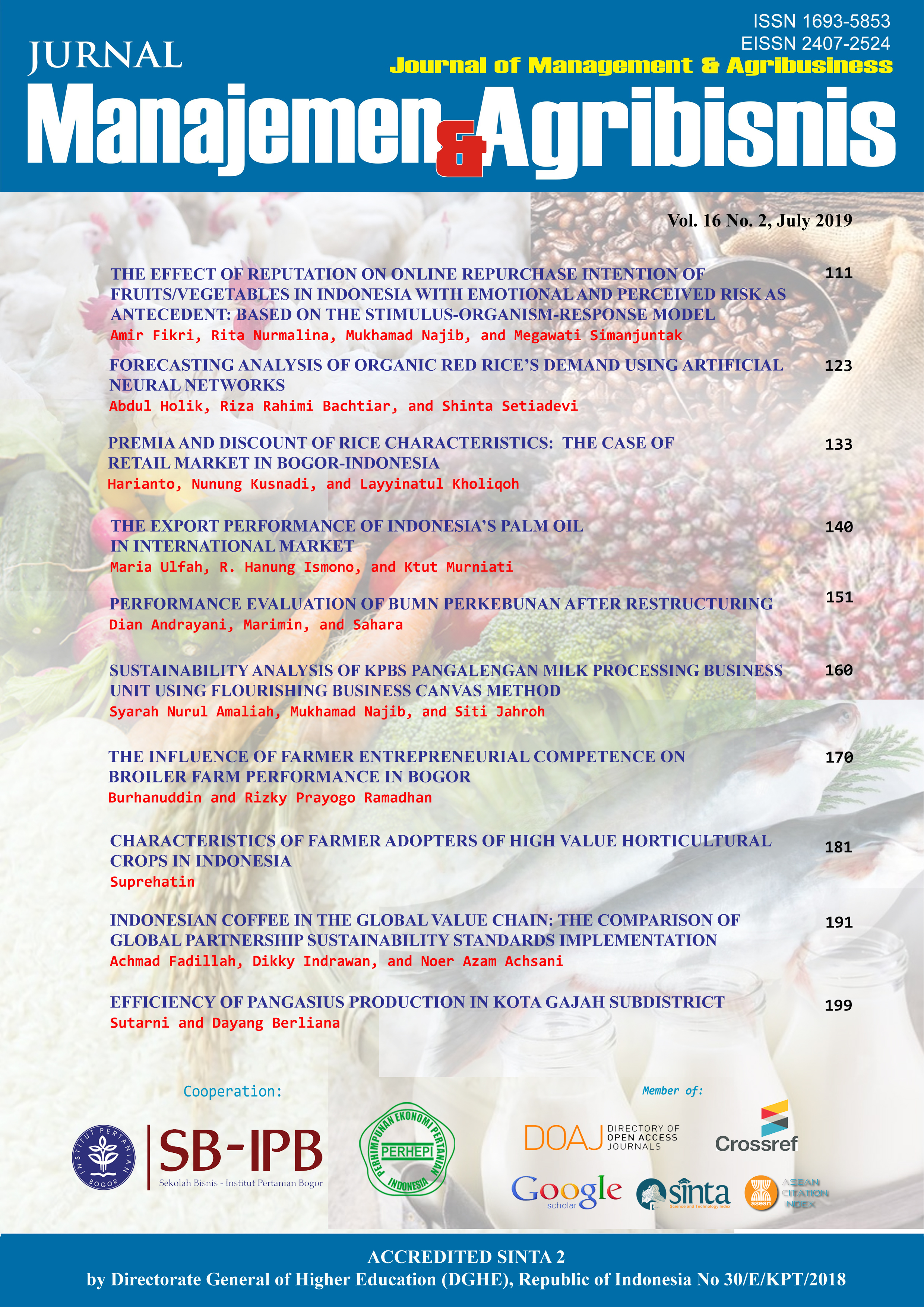The Effect of Reputation on Online Repurchase Intention of Fruits/Vegetables in Indonesia With Emotional and Perceived Risk as Antecedent: Based on The Stimulus-Organism-Response Model
Abstract
As the trend of online business shopping began to develop it is necessary to have a number of factors anticipated, among others, fresh vegetables/fruit online repurchase intention. The aim of this study is to explain the determinant which influences repurchase intention of customer who buys fruits and vegetables by using e-commerce in Indonesia. Stimulus-Organism-Response Model are used as the basic concepts in this study. The sample collection methods in this study is convenience sampling from 331 respondents who met the criteria. Collected data is analysed using Structural Equation Model (SEM) Lisrel 8.8 and SPSS 24.0 program for all variables. The result of the findings show that there is a significant influence between emotion and risk perceived towards online repurchase intention, and perceived risk give a negative impact to online repurchase intention and emotion. The reputation of e-retailers has no significant effect on perceived risk. Perceived risk has a significant influence on emotion and online repurchase intentions.This study found that emotion significantly influences willingness to online repurchase intention toward fresh vegetables/fruits in Indonesian’s e-shopper. This study will be useful to vegetables and fruits e-retailers as well as future researchers.
Keywords: online repurchase intention, e-commerce, stimulus-organism-response model, reputation, emotion, perceived risk
Authors
Authors who publish with this journal agree to the following terms:
- Authors retain copyright and grant the journal right of first publication with the work simultaneously licensed under a Creative Commons Attribution License that allows others to share the work with an acknowledgement of the work's authorship and initial publication in this journal.
- Authors are able to enter into separate, additional contractual arrangements for the non-exclusive distribution of the journal's published version of the work (e.g., post it to an institutional repository or publish it in a book), with an acknowledgement of its initial publication in this journal.
- Authors are permitted and encouraged to post their work online (e.g., in institutional repositories or on their website) prior to and during the submission process, as it can lead to productive exchanges, as well as earlier and greater citation of published work (See The Effect of Open Access).

